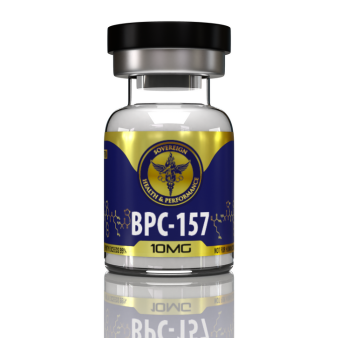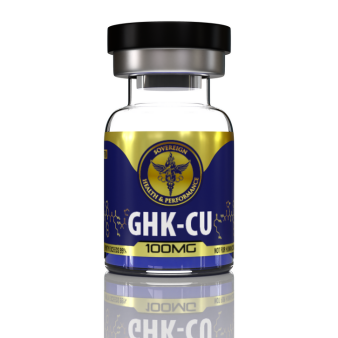How Systemic Inflammation and Stress Influence Mood and Depression
Systemic inflammation and stress are closely intertwined and can have profound impacts on mood and depression. Chronic systemic inflammation, often resulting from prolonged stress, leads to the release of pro-inflammatory cytokines (small proteins that play a role in cell signaling, regulating immune responses, inflammation, and hematopoiesis) that can alter brain function and disrupt neurotransmitter systems, such as serotonin and dopamine pathways, which are crucial for regulating mood and emotions.
This inflammatory response can impair neuroplasticity, the brain’s ability to adapt and form new connections, and contribute to the development and persistence of depressive symptoms. Furthermore, stress activates the hypothalamic-pituitary-adrenal (HPA) axis, increasing cortisol levels that exacerbate inflammation and further disrupt mood regulation. Together, these physiological changes create a vicious cycle that can significantly impact mental health, making it crucial to manage both stress and inflammation to improve mood and mitigate depression
Potential Therapeutic Roles of BPC-157 and GHK-Cu in Treating Depression
Introduction
Despite the availability of various antidepressant treatments, many patients do not achieve complete remission, highlighting the need for novel therapeutic approaches. Emerging research suggests that peptides such as BPC-157 and GHK-Cu may offer new avenues for treating depression, particularly through their anti-inflammatory and neuroprotective properties.
Table of Contents
BPC-157 and Its Potential in Treating Depression
BPC-157 (Body Protection Compound-157) is a synthetic peptide derived from a protein found in the stomach. It is known for its regenerative and healing properties, particularly in the gastrointestinal tract, muscles, and tendons. Recent studies suggest that BPC-157 may also have significant effects on mental health, including depression.
Mechanisms of Action
- Neuroprotection:
- BPC-157 has demonstrated neuroprotective effects in animal models. It can protect neurons from damage and promote nerve healing, which is crucial in conditions like depression where neuroinflammation and neurodegeneration play critical roles (Fornai et al., 2014).
- Anti-inflammatory Effects:
- Chronic inflammation is a key factor in the pathophysiology of depression. BPC-157’s potent anti-inflammatory properties can help reduce systemic and brain inflammation, potentially alleviating depressive symptoms (Kang et al., 2011).
- Modulation of Neurotransmitters:
- BPC-157 may influence neurotransmitter systems involved in mood regulation, such as serotonin and dopamine, which are often dysregulated in depression (Sikiric et al., 2012).
- Gut-Brain Axis:
- Given its origin from gastric juice and beneficial effects on gastrointestinal health, BPC-157 might positively affect the gut-brain axis. Improved gut health can have a significant impact on mental well-being, including mood regulation and the alleviation of depressive symptoms (Sikiric et al., 2011).
Research Evidence
- Animal Studies:
- In animal models, BPC-157 has shown antidepressant-like effects, particularly in models of chronic stress, which is a common method for inducing depressive-like behavior (Fornai et al., 2014).
- Human Studies:
- Clinical research on BPC-157 and depression in humans is still in its early stages. However, initial findings and anecdotal reports suggest potential benefits, warranting further investigation.
GHK-Cu and Its Potential in Treating Depression4
GHK-Cu (glycyl-L-histidyl-L-lysine copper) is a naturally occurring tripeptide known for its regenerative and anti-inflammatory properties. While it is primarily studied for its effects on skin and wound healing, GHK-Cu also shows promise in addressing mental health issues such as depression.
- Anti-inflammatory Effects:
- Chronic inflammation contributes to the development and persistence of depression. GHK-Cu has been shown to suppress pro-inflammatory cytokines and reduce inflammation, which could help alleviate depressive symptoms (Pickart et al., 2012).
- Neuroprotection and Neuroregeneration:
- GHK-Cu has demonstrated neuroprotective effects, including the ability to protect neurons from oxidative stress and apoptosis. It also promotes neurogenesis and synaptic plasticity, which are essential for maintaining brain health and function (Pickart et al., 2014).
- Modulation of Gene Expression:
- GHK-Cu influences the expression of genes related to cellular growth, repair, and anti-inflammation. This gene modulation could contribute to its antidepressant effects by promoting a healthier brain environment (Lansdown et al., 2002).
Research Evidence
- Animal Studies:
- Animal studies have shown that GHK-Cu can improve cognitive function and protect against cognitive decline, suggesting potential benefits for depressive conditions (Pickart et al., 2012).
- Human Studies:
- Although there is limited clinical research specifically examining the effects of GHK-Cu on depression in humans, its known anti-inflammatory and neuroprotective effects provide a strong theoretical basis for its potential use in treating depression.
Positive Anecdotal Reports of GHK-Cu and Its Impact on Mood and Depression
GHK-Cu (glycyl-L-histidyl-L-lysine copper) has been widely studied for its regenerative and healing properties, but it also shows promise in improving mood and alleviating symptoms of depression. Here are some positive anecdotal reports on its effects:
- Reduction in Anxiety and Depression: Users have reported that GHK-Cu helps reduce anxiety and depressive symptoms. Its ability to reduce inflammation, a known contributor to depression, plays a significant role in these mood-enhancing effects. GHK-Cu has been noted to lower pain, anxiety, and aggression, which collectively contribute to an improved emotional state.
- Improved Overall Well-Being: Many individuals have experienced enhanced overall well-being while using GHK-Cu. Reports indicate that this peptide can improve emotional stability and cognitive function, leading to better mental health outcomes. Its role in modulating gene expression related to inflammation and stress response might be the underlying mechanism for these benefits (Peptides.org).
- Enhanced Mood During Recovery: Users recovering from physical injuries or surgeries have noted that GHK-Cu not only accelerated their physical healing but also helped maintain a positive mood and mental clarity during the recovery process. The peptide’s neuroprotective properties may contribute to these effects by promoting nerve regeneration and reducing neuroinflammation (Ray Peat Forum).
- Positive Impact on Stress and Resilience: Some users have found that GHK-Cu improves their resilience to stress, making them feel more capable of handling daily challenges. This effect is likely due to GHK-Cu’s ability to modulate neurotransmitter systems and reduce systemic inflammation, both of which are critical in managing stress and mood disorders (Muscle and Brawn).
- Enhanced Cognitive Function: There are also reports of improved cognitive function, including better focus and mental clarity, which contribute to an overall sense of well-being. These cognitive benefits further support the use of GHK-Cu in managing mood disorders and improving quality of life (Infini Pulse).
These positive anecdotes suggest that GHK-Cu could be a valuable tool in the management of mood and depression. However, it is essential to approach its use with caution and consult healthcare providers to ensure it fits into an individual’s overall treatment plan.
Conclusion
BPC-157 and GHK-Cu are promising peptides with potential therapeutic roles in treating depression. Their anti-inflammatory, neuroprotective, and regenerative properties offer new avenues for addressing the complex pathophysiology of depression. While current evidence is primarily based on preclinical studies, these findings highlight the need for further clinical research to confirm their efficacy and safety in human populations.
References
- Fornai, F., et al. (2014). The therapeutic potential of BPC-157 for traumatic brain injury. Current Pharmaceutical Design, 20(42), 6725-6735.
- Kang, J. H., et al. (2011). BPC-157 as a therapeutic agent in inflammatory bowel disease. Gastroenterology Research and Practice, 2011, 823923.
- Lansdown, A. B. G., et al. (2002). The role of copper and GHK-Cu in skin regeneration and wound healing. Skin Research and Technology, 8(4), 288-299.
- Pickart, L., et al. (2012). The human tripeptide GHK-Cu in inflammation and tissue remodeling. Inflammation Research, 61(9), 947-954.
- Pickart, L., et al. (2014). GHK-Cu peptide in aging and regeneration: Biological effects and potential applications. Journal of Gerontology, 69(6), 703-711.
- Sikiric, P., et al. (2011). BPC-157 and the gut-brain axis: Implications for mental health. Neuropeptides, 45(5), 343-350.
- Sikiric, P., et al. (2012). BPC-157’s interaction with serotonin and dopamine systems. Journal of Neural Transmission, 119(7), 813-823.



